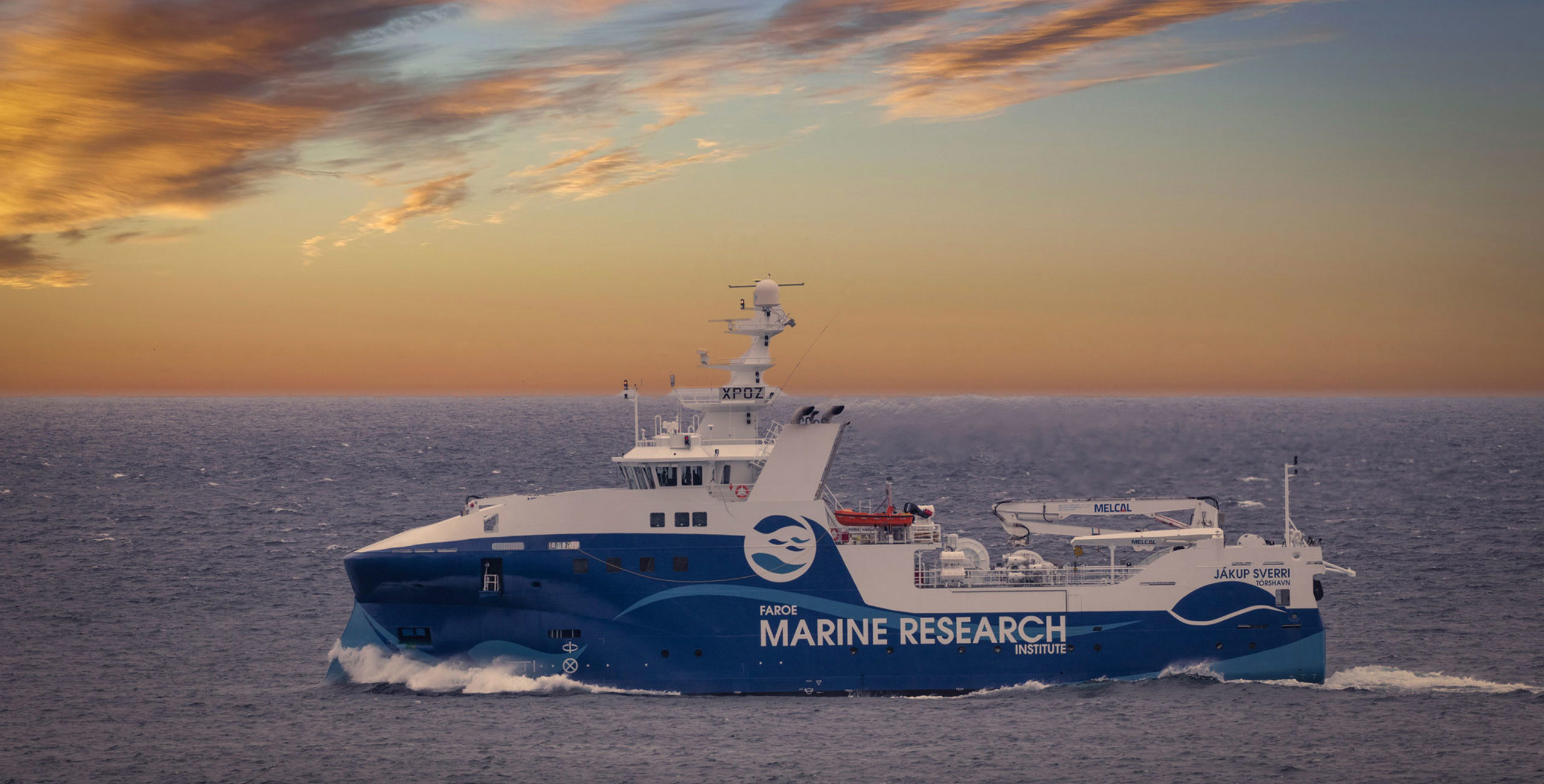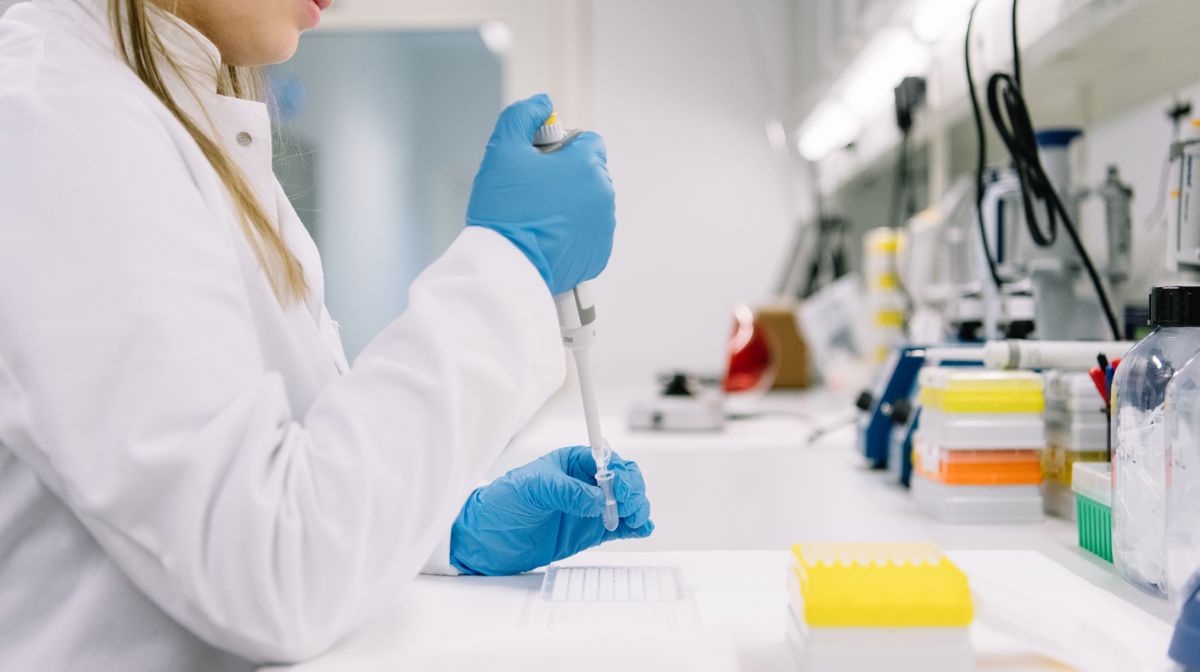
National and international collaboration is essential to the quality of Faroese research and innovation. Researchers from the Faroe Islands participate in many international networks, and the Faroese research and innovation landscape is partly anchored in international collaborations.
The Faroe Islands have been an associated country to the European Framework Programmes for Research and Innovation since 2010. On 24 May 2022 the association agreement on the participation of the Faroe Islands to Horizon Europe, the EU’s research, and innovation programme (2021-2027), was signed in Brussels. Faroese researchers and institutes actively contribute to various European projects, focusing on areas like environment, climate change, ecosystems, and fisheries management.
The University of the Faroe Islands is a state-run university, located in Tórshavn. Comprising five faculties dedicated to education and research, the university is also home to a central administration housing the Student Service Centre and the International Office. The student body is about 1000 students in total.
Visit the university's dedicated page here.
Research Council Faroe Islands
Research Council Faroe Islands is a public institute which funds research and innovation from the Faroese national budget and from other sources. The Research Council provides guidance and advice for applicants seeking funding from sources administered by the council. The council also informs about research and innovation in a broad perspective and arranges events and workshops. The Research Council also advises the Government and industry on matters relating to research policy.
Regarding international relations, the Research Council Faroe Islands offers support when applying to several international programmes. The council hosts the Faroese National Contact Point for Horizon Europe, serving as the Bridgehead Organisation for Faroese EURAXESS services. The council also represents the Faroe Islands in NordForsk and other international collaborations.
Horizon Europe is EU’s key funding programme for research and innovation from 2021 to 2027. The association agreement facilitating the involvement of the Faroe Islands in the program ensures that Faroese researchers, innovators, and research entities can participate in the €95.5 billion programme on equal terms with entities from the EU Member States.
EURAXESS is a pan-European initiative delivering information and support services to professional researchers. It supports researcher mobility and career development, while enhancing scientific collaboration between Europe and the world. With Service Centres in 43 countries, EURAXESS Faroe Islands, integrated into the network, operates through Service Centres at Research Council Faroe Islands and the University of the Faroe Islands, along with Contact Points in numerous public research institutions and industry settings.
The objective of EURAXESS Faroe Islands is to give online information and practical assistance for researchers moving to and from the Faroe Islands.
Nordforsk is an organisation under the Nordic Council of Ministers which provides funding for and facilitates Nordic cooperation on research and research infrastructure. The director of Research Council Faroe Islands represents the Faroe Islands in Nordforsk.
Furthermore, the Faroe Islands have observer status in ERAC (European Research Area Committee), a research policy advisory body to the European Commission and the Council of the European Union, as well as in ESFRI (European Strategy Forum on Research Infrastructures), a strategic instrument to develop scientific integration of Europe and strengthen its international outreach.
Read more on Faroese international relations in research here.
Research Park iNOVA
Research Park iNOVA is a facility located in Tórshavn, the Faroe Islands, where private enterprises and public institutions can access state-of-the-art laboratories, instruments, offices, and an event location.
The research facility was created as a part of a coordinated effort by the state and an array of the largest private enterprises on the islands to improve the scientific infrastructure of the Faroe Islands.
iNOVA is a unique scientific environment, where research departments of private companies share a roof with the university and public research institutions, granting improved access to high-end instruments and allowing coordinated cooperation and shared skills and competencies between users.
Department of Research
Department of Research (in Faroese ‘Heilsugranskingareindin’), established in 2023 under the auspices of the National Hospital of the Faroe Islands, serves as a centralised unit for health research endeavors. Previously dispersed across various departments, including the Department of Occupational Medicine and Public Health, the National Hospital of the Faroe Islands, and the Genetic Biobank, these research activities have now been consolidated within the Department of Research. Researchers at the Department of Research and in the hospital participate in a host of research projects with fellow researchers based at other research institutions and/or universities, both in the Faroes and abroad. PhD candidates and postdoctoral researchers also work at the department.
Marine Biology
Firum – The Aquaculture Research Station of the Faroes is a government-owned company, tasked with researching, developing, and advising in the areas of water-based animals and plant farming, as well as biotechnology. Its primary focus is to engage in commercial activities within these domains, along with other related activities, guided by the overarching vision “Knowledge for Sustainable Aquaculture”.
Firum is dedicated to conducting high-quality research for internationally recognised expertise in sustainable aquaculture, benefiting both the industry and the Faroese economy. As an independent entity, Firum provides valuable services to the aquaculture sector, emphasising adherence to global standards in animal welfare, production, environment, and sustainability.
The research of Firum focuses on developing insights into aquaculture, with a strong emphasis on fostering the sustainable growth of Faroese aquaculture. With three farming licenses in Skopun, við Áir, and Nesvík, Firum leads in advancing responsible and innovative practices in aquaculture.
The Faroe Marine Research Institute conducts annual studies on the Faroese marine environment and its resources, providing information and advice to the local authorities and the public. The research institute informs the Faroese government about fish stocks in both local and external waters, offering scientific assessments as required by commercial fishing laws.
Through annual fisheries surveys using the research vessel “Jákup Sverri” (see more below) and chartered vessels, as well as environmental surveys, the institute tracks changes and ensures sustainable resource management. Additionally, the institute engages in experimental fishery projects, collaborates on Nordic and international initiatives, and conducts studies related to the impact of an upcoming oil industry in Faroese waters.
In November 2020, a research vessel of the Faroe Marine Research Institute, Jákup Sverri, was handed to the Faroese Government. The new marine research vessel The vessel was named in honor of Jákup Sverri Joensen, the first marine biologist in the Faroe Islands and former director of the Faroe Marine Research Institute
As the fourth research vessel in the Faroe Marine Research Institute’s fleet, Jákup Sverri stands out as the first purpose-built vessel tailored specifically for marine research. Boasting cutting-edge technology, the vessel is well-equipped for comprehensive studies on the marine environment, fish stocks, and seismic surveys. Based on recognised research findings, the ship is also likely the quietest vessel in the world.
Read more here.
The National Museum of the Faroe Islands
With a central focus on research and a dedicated aim to advance societal culture, the National Museum of the Faroe Islands investigates and preserves the natural and cultural heritage of the Faroe Islands.
The institution actively collects, records, preserves, and investigates the country's natural and cultural values. Through publications and exhibitions, the museum disseminates knowledge about the rich history and vibrant nature of the Faroe Islands, contributing to the understanding of times, communities, and traditions. Additionally, the museum plays a vital role in documenting and protecting archaeological artifacts, including dwelling remains, burial sites, and other culturally significant items.
Current research projects can be found here (in Faroese).
Earth and Environmental Sciences
The Faroese Geological Survey is an institution under the Ministry of Foreign Affairs, Industry and Trade. Its purpose is to administer, investigate, advise, and disseminate knowledge about hydrocarbons and geological natural resources. The institution conducts research in geology and environmental science on land, on the seabed, and in the subsoil. The institution is a geological museum for the Faroe Islands, meaning that it manages a collection of Faroese rocks and minerals, as well as organising exhibitions and education.
The Environment Agency is a governmental agency under the Ministry of the Environment. Its research areas include examinations of pollution in animals, humans, nature, and urban areas. It also maintains an environmental specimen bank with various biological items suitable for further research.
